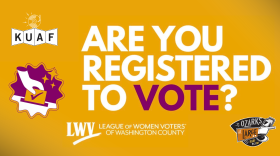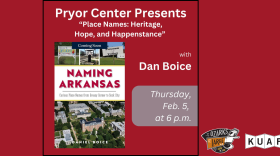SCOTT SIMON, HOST:
People with addiction are being forced into drug treatment programs more frequently across the country. Those who refuse are threatened with prison, the loss of welfare benefits or other penalties. Supporters say this tough-love approach may be necessary, but many doctors and addiction experts disagree and say it might lead to more fatal overdoses. NPR addiction correspondent Brian Mann joins us now. Brian, thanks for being with us.
BRIAN MANN, BYLINE: Hi there, Scott.
SIMON: Brian, how common has mandated addiction care become around the country?
MANN: They're really common. And it's noteworthy, Scott, that drug use is one of the few areas of American life where officials use this threat of criminal penalties and prison time to pressure people into accepting medical treatment against their will. With the threat of fentanyl, more states are embracing this idea. Just a few weeks ago, when lawmakers in Oregon were debating a measure to recriminalize hard drug use, this kind of mandated treatment was a cornerstone of the bill. Here's State Representative Kevin Mannix.
(SOUNDBITE OF ARCHIVED RECORDING)
KEVIN MANNIX: The central or core principle here was accountability combined with compassion.
MANN: And that measure passed on a bipartisan vote. California passed a similar law last year, making it a lot easier to detain people and force them into medical treatment for addiction. And voters in San Francisco just approved a measure that requires people on welfare to get drug treatment.
SIMON: What's the argument for forced treatment?
MANN: Well, really, since the 1970s, governments in many parts of the U.S. have used drug courts and other systems to pressure people to first get sober and then accept treatment. Because of fentanyl, as I mentioned, street drugs are more deadly, killing tens of thousands of people a year, so these policies are gaining momentum again. I spoke about this with Tom Wolf. He's a recovery activist in San Francisco, and he says this process, being arrested and threatened with punishment, saved his life.
TOM WOLF: It helped me kick the withdrawals from the heroin and the fentanyl that I had started to use as well. And then I was given an opportunity, a choice. I could continue to sit in jail at that point, or I could go to a rehab.
MANN: So these programs do help some people. Wolf's been in recovery for nearly six years.
SIMON: Brian, you also spoke with some addiction experts who were troubled by this approach. What did they say?
MANN: Well, really, most experts I spoke to, Scott - physicians and researchers - said linking health care and police and criminal punishments is ineffective and can actually scare people away from treatment. Morgan Godvin studies drug policy in Portland, Ore. She was addicted to heroin and says she and many of her friends were forced into these treatment programs. She says they were dehumanizing and dangerous.
MORGAN GODVIN: Psychologically, I associate treatment with handcuffs and strip searches. We were harmed by our contact with the criminal justice system.
MANN: And one of the big concerns here, Scott, that people raise is that people sent into these mandated treatment programs often relapse. They start using drugs again, then they wind up behind bars. And there's strong data showing those people sent to jail or prison are then far more likely to overdose and die when they're released. So experts say these tough-love laws are meant to be compassionate, but often have these really deadly unintended consequences.
SIMON: You also heard concerns, Brian, about medical ethics. What did people say about that?
MANN: Yeah, a lot of doctors I talked to say using police and threats of prison time to coerce people into medical care they don't want is just wrong. I spoke about this with Dr. Stephen Taylor with the American Society of Addiction Medicine.
STEPHEN TAYLOR: We want to help people who have addiction disorders, but we have to respect people's autonomy and their rights to accept treatment if they want to accept treatment.
MANN: And Taylor, who's Black, says this kind of coerced treatment is especially problematic for people of color.
SIMON: And why is that?
MANN: Well, Scott, studies show Black people, Native Americans and Hispanics are arrested far more often when they use drugs, and they're punished more severely. Researchers also say there's bias and stigma against people of color inside many of these addiction treatment programs that people are being forced into. One study published just last year in the New England Journal of Medicine found substantial racial and ethnic disparities. I spoke about this with Kassandra Frederique, who's also Black. She heads a group called the Drug Policy Alliance that opposes drug criminalization.
KASSANDRA FREDERIQUE: Oftentimes when people name the carrot and stick intervention, what they tend to miss is that some people get the stick more than others.
MANN: So again, the idea, the goal of these laws is compassion. But critics say the end result is often more people, especially people of color, winding up behind bars.
SIMON: I don't have to tell you, Brian, fentanyl is a real crisis that harms human lives. The critics of these mandatory treatment programs have other ideas.
MANN: Yeah, everyone I interviewed, Scott, agrees about one thing, that the U.S. needs a lot more drug treatment programs that are more widely available and affordable. People say if that system were in place, more people would enter treatment voluntarily. Right now, a lot of the states adopting these mandated treatment programs don't have enough capacity in their health care systems to treat the people being arrested. A lot of communities are ramping up their health care programs for addiction, but that process is going to take years.
SIMON: NPR's Brian Mann, thanks so much.
MANN: Thank you.
(SOUNDBITE OF MUSIC) Transcript provided by NPR, Copyright NPR.
NPR transcripts are created on a rush deadline by an NPR contractor. This text may not be in its final form and may be updated or revised in the future. Accuracy and availability may vary. The authoritative record of NPR’s programming is the audio record.







